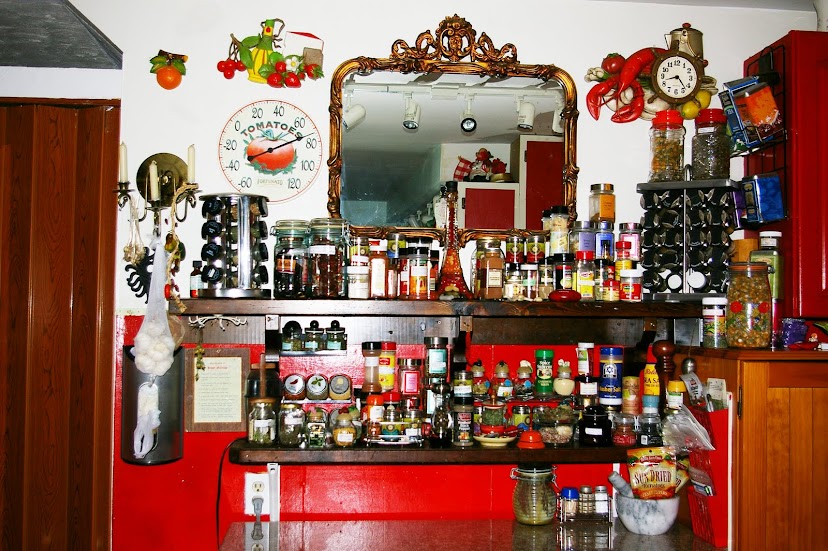Did you know that Traditional Chinese Medicine goes back for thousands of years. Written records go back two thousand years, but the tradition may go back 5000 years.Ding Xiang: You most likely have some of this spice in your spice rack right now. It is the Chinese name for cloves. Some of the medicinal uses are the same as found in Western practices; to stimulate the appetite and clear up flatulence and belching. They also use it for impotence. We in the West use the oil of cloves for some dental problems.
Gancao: Licorice root is used in both Chinese and Western practices for sore throats and digestive complaints. Chinese practice includes it for asthma and poor appetite. Care must be taken if you have high blood pressure, as this herb will cause it to go up. Note that the candies called licorice may not contain any of the herb. Most candy makers use anise to avoid side effects and drug interactions.
Lu Hui: Aloe is a handy plant in dealing with minor burns and some skin problems. Both Chinese and Western medicine use it as a laxative, though the Chinese also view it as a means of expelling worms. I don't recommend ingesting the plant because it can cause painful cramping and may interact with your heart and/or heart medications.
Manjingz: Women have found the chaste berry very helpful in dealing with "female complaints." It may ease symptoms of PMS and symptoms of menopause. The Chinese use it for liver complaints and headaches.
Rougui: This is another denizen of many spice racks; cinnamon. Western traditional use includes diabetes, sore throats and digestive problems. It is also used traditionally to lower fevers and "sweat out" illnesses. Chinese medicine includes poor appetite, kidney problems and impotence.
Shengjiang: Unless you do a lot of Asian cooking, you probably don't have fresh ginger, but I try to keep it around. This is especially true during cold and flu season. This spicy rhizome can help with colds and flu, ease stomach pain and nausea. A piece placed between the cheek and gum is said to ward off motion sickness. The Chinese use it for specific types of nausea and vomiting as well as for symptoms of colds and flu.
Cloves, cinnamon and ginger are safe in food amounts for most people. If you wish to use any of these as supplements, it is a good idea to check with your doctor or pharmacist to make sure they will not interact with any medication you currently take.
Gancao: Licorice root is used in both Chinese and Western practices for sore throats and digestive complaints. Chinese practice includes it for asthma and poor appetite. Care must be taken if you have high blood pressure, as this herb will cause it to go up. Note that the candies called licorice may not contain any of the herb. Most candy makers use anise to avoid side effects and drug interactions.
Lu Hui: Aloe is a handy plant in dealing with minor burns and some skin problems. Both Chinese and Western medicine use it as a laxative, though the Chinese also view it as a means of expelling worms. I don't recommend ingesting the plant because it can cause painful cramping and may interact with your heart and/or heart medications.
Manjingz: Women have found the chaste berry very helpful in dealing with "female complaints." It may ease symptoms of PMS and symptoms of menopause. The Chinese use it for liver complaints and headaches.
Rougui: This is another denizen of many spice racks; cinnamon. Western traditional use includes diabetes, sore throats and digestive problems. It is also used traditionally to lower fevers and "sweat out" illnesses. Chinese medicine includes poor appetite, kidney problems and impotence.
Shengjiang: Unless you do a lot of Asian cooking, you probably don't have fresh ginger, but I try to keep it around. This is especially true during cold and flu season. This spicy rhizome can help with colds and flu, ease stomach pain and nausea. A piece placed between the cheek and gum is said to ward off motion sickness. The Chinese use it for specific types of nausea and vomiting as well as for symptoms of colds and flu.
Cloves, cinnamon and ginger are safe in food amounts for most people. If you wish to use any of these as supplements, it is a good idea to check with your doctor or pharmacist to make sure they will not interact with any medication you currently take.

No comments:
Post a Comment